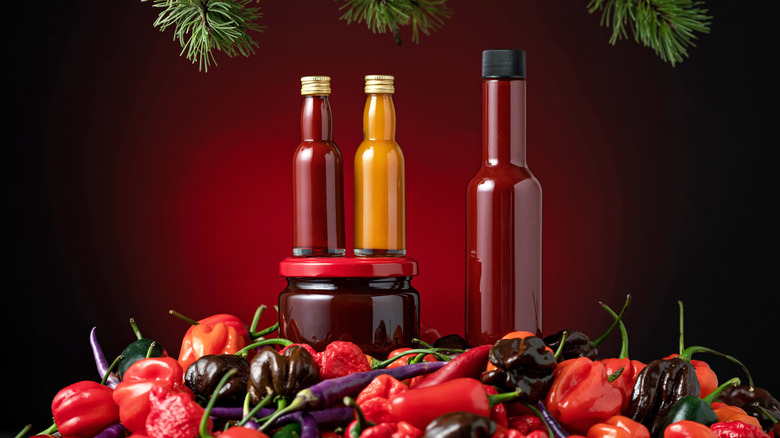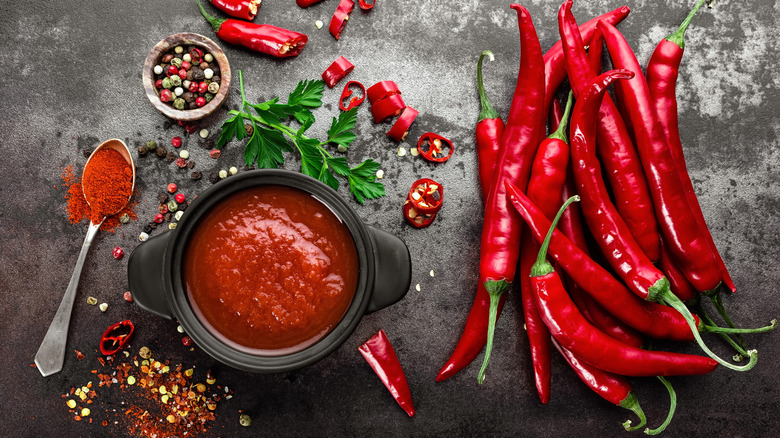Fresh Or Dried Peppers: What's The Best Choice For Homemade Hot Sauce?
There are more options than ever if you like your food with a dash of heat. In addition to spice-heavy cuisine, there are plenty of hot sauces that are actually worthy of your pantry space. And if those are still not hitting the spot, you can always take on crafting a spicy condiment into your own hands. When setting out to build a mix, you may wonder: Are fresh or dried peppers the better choice?
Turns out, there are many potential routes for homemade hot sauce. So to help navigate the options, Chowhound has exclusive advice from Noah Chaimberg. As the founder and CEO of Heatonist, he is well-versed in hot sauces. You've likely seen his products on hit internet series "Hot Ones." According to Chaimberg, it's possible to craft a delicious hot sauce with either one. "Whether you use fresh or dried peppers is totally up to you!" he says. "It's personal preference and what works with the vibe you're going for."
Just know that each type appeals to a specific palate. Reach for the raw peppers, and you'll get a bright, fruity, and tart sauce. Meanwhile with dried peppers in the mix, earthy and smoky flavors will be the more prominent notes. So rather than wondering which pepper type is best, consider such qualities to build your ideal flavor.
Experiment with peppers to determine the desired hot sauce flavor
Hot sauces come in a wide array of styles, so feel inspired rather than limited by the condiment type. All that's essential to the sauce is the combination of peppers and liquid — vinegar is most common, but oil or water can be the base, too. Naturally, the many types of spicy peppers play a prominent role in the sauce's creation. So prior to crafting your hot sauce, consider not just the pepper format, but the way it'll mingle with other components, too. Integrate fresh peppers into more herbal, zingy mixes, and dried ones into sauces heavy on garlic or other spices.
And don't forget you'll want to adjust the prep per pepper, too. Raw peppers typically benefit from a pulse in the food processor, while Heatonist CEO Noah Chaimberg recommends blooming dried peppers in hot water or vinegar first. Consider the condiment stability, too. Some sauces — like Yemeni zhoug or more salsa-like creations — are designed to be consumed fresh. However, other versions of hot sauces can be stored at room temperature. So if you're after the most long-lasting type, that's another reason to tailor your hot sauce around dried pepper varieties.

